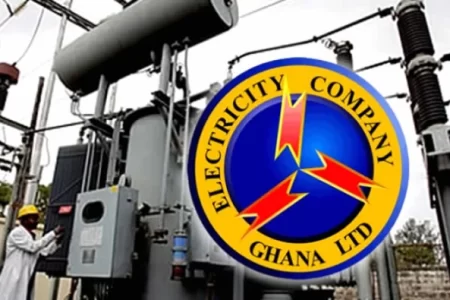Ghana’s newly elected President, John Mahama, faces a stark reality upon assuming office: a resurgent energy crisis. Just days after his victory in the general elections, the nation has been grappling with a return of frequent power outages, the infamous “dumsor,” a phenomenon that plagued the country in previous years. While the outgoing New Patriotic Party (NPP) government attempted to mask the severity of the situation leading up to the elections, the truth is now painfully clear: Ghana’s energy infrastructure remains fragile, and a significant challenge awaits the incoming administration.
The reappearance of dumsor is a jarring setback for a nation striving for economic growth and stability. Businesses, already struggling with various economic pressures, are now facing further disruption to their operations. Hospitals, schools, and homes are all experiencing the debilitating effects of unreliable power supply, impacting the daily lives of ordinary Ghanaians. The economic consequences are significant, ranging from lost productivity and revenue to increased operational costs and potential damage to sensitive equipment.
Accusations are swirling that the NPP deliberately downplayed the extent of the energy crisis in the run-up to the election, prioritising political gain over honest assessment and proactive solutions. This alleged cover-up, if proven, represents a serious failure of governance and a betrayal of public trust. While concrete evidence remains to be fully unearthed and verified, the sudden and sharp increase in power outages immediately following the election lends credence to these claims. Citizens are understandably frustrated and demanding answers, particularly regarding the allocation of resources and the effectiveness of government policies under the previous administration.
President-elect Mahama inherits this complex and multifaceted problem. His previous tenure as president offers both experience and a potential roadmap for addressing the crisis. He is familiar with the intricacies of Ghana’s energy sector and has previously implemented initiatives aimed at improving power generation and distribution. The alleged deliberate obfuscation by the outgoing government leaves Mahama with a potentially larger deficit in information and resources than he might have otherwise anticipated.
Moving forward, several key actions are crucial for Mahama’s administration. First, a thorough and transparent investigation into the causes of the current crisis is paramount. This must go beyond simply identifying immediate technical issues and delve into the systemic failures that allowed the problem to fester and resurface. The investigation should also address allegations of deliberate misinformation and mismanagement under the previous administration, holding accountable those responsible for any unethical actions.
Secondly, a comprehensive strategy for immediate relief is essential. This will likely involve a combination of measures, including emergency power procurement, targeted investments in critical infrastructure upgrades, and the exploration of alternative energy sources.
Finally, and perhaps most importantly, a long-term plan for sustainable energy development is needed. This requires a multifaceted approach incorporating a mix of renewable and conventional energy sources, improvements in energy efficiency, and investments in grid modernisation. Furthermore, fostering public-private partnerships and attracting foreign investment in the energy sector will be critical for long-term sustainability and growth.
President-elect Mahama faces a monumental task in tackling Ghana’s resurgent energy crisis. The challenge is substantial, but his experience and the nation’s collective resolve offer a glimmer of hope for a brighter and more reliably powered future. The success of his efforts will not only determine the immediate well-being of Ghanaians but also their long-term economic prospects and overall development.
Source: today.com.gh

